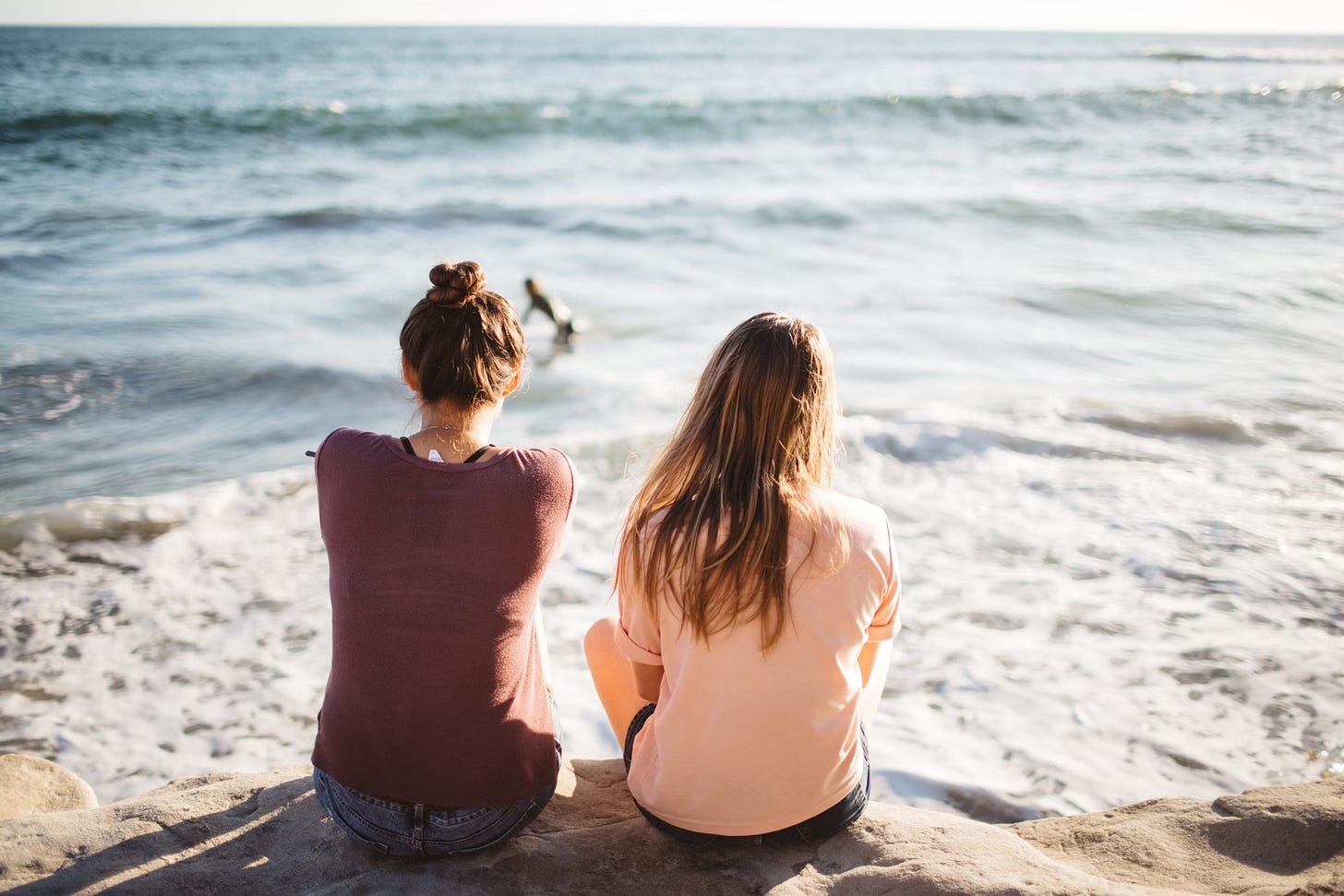*forward this letter to a friend or someone you work with who is navigating the very real challenges of summering sober
Here’s a fun list (note sarcasm) of ways that I’ve had very unhealthy boundaries in the past:
· Not knowing who I am or having a flimsy sense of my own identity or self-hood
· Oversharing very intimate details about myself or my past in unsafe spaces
· Not expressing my true needs and wants
· Allowing others to make decisions for me
· Not taking responsibility for my own choices or life direction
· Getting self-worth (or lack thereof) from how I’m treated by others
· Not saying “no” when I really want to say “no!”
Can you relate? If you’ve said: “me, too” after any of these 7 points, you might have boundary issues (and you likely already know this).
What are some ways you know that you’ve struggled with boundaries in the past?
Are you connecting with any of these signs of unhealthy boundaries now?
[Comment below so that other folks know they are not alone]
*
Boundaries take the concept of self-care in the right direction.
I share more about this in my upcoming book and it is important to repeat here as we near Memorial Day weekend: When we practice healthy boundary setting, we protect the temple that is our body, heart, and life.
Forget milky warm baths with books, candles, and sparkling water: imagery like a Homegoods ad.
Boundaries are really about self-worth and how much we value ourselves. When we value ourselves, we also say to those around us: I am worth valuing.
Photo by Anthony DELANOIX on Unsplash
During the summer months, it can be especially important to set healthy boundaries, as there are more opportunities to gather in unsafe and unhealthy spaces.
So, what are healthy boundaries?
According to the Resilience Centre, healthy boundaries allow an individual to:
· Foster a strong sense of self-worth and self-regard.
· Gradually disclose personal information within the context of a trusting and reciprocal relationship.
· Safeguard both your physical and emotional space against unwarranted intrusion.
· Cultivate an equitable partnership where responsibilities and power are shared.
· Practice assertiveness by confidently expressing both affirmative and negative responses, and accepting others' negative responses gracefully.
And what is more, having healthy boundaries is all about recognizing that we have the right to be treated well—and then acting on this truth. This might sound simple, but for many of us with addiction and other co-occurring challenges, this has been a lesson hard learned. Many of us have experienced so many boundary violations it is a miracle that we are still standing. That our bodies have any edge, any outline about them at all. It’s a miracle our flesh hasn’t disintegrated into someone else, that person you want us to be.
What are some ways that you practice healthy boundaries? Comment below and share your own lessons learned.
Photo by Joshua Sazon on Unsplash
Here are some ways that boundaries can be helpful if confronted with gatherings that might be unhealthy over the summer (including upcoming Memorial Day Weekend) if we are in or seeking recovery:
Be Clear and Specific: Know and define in a clear way what you think and feel
Example: "I’m not comfortable being around a bunch of cannabis smoke and alcohol, so if it’s around, I’m going to have to take off.”
Use "I" Statements: [it’s okay to make healthy decisions for you!]
Example: "I need to avoid situations that are unhealthy for me." or “I am going to do something that is healthy today.”
Consistency: Be a broken record and maintain boundaries to reinforce them (for both yourself and others).
Example: Don’t change up the rules on yourself like, “If it’s an outdoor concert with a lot of drug use, I’ll be fine going by myself.” Stick to the boundaries you’ve set for yourself.
Use Assertive Communication: be clear, assertive, and respectful
Example: "You make your own choices, but I am going to prioritize my recovery.”
Seek Support: You can seek support and don’t have to set boundaries alone.
Example: "Let’s connect with a group of sober friends for the farmer’s market in the morning instead of that party."
Learning to develop boundaries, whether that is in romantic relationships, friendships, with the people we are working with, or even with our own time can be life-changing. To be able to say “no” and prioritize our own care and recovery is a radical and compassionate act.
When we give ourselves and our bodies the respect they deserve, we can show up for ourselves and others in a healthier and more loving way.
A couple of REALLY good Substacks that I recommend that talk about boundaries related to all things addiction recovery:
In a healthy and vibrant recovery, personal boundaries both respect ourselves, promote self-care, and communicate how we feel about ourselves to those around us.
Importantly, boundaries also let others know not only how we want to be treated but also what we will tolerate and where we draw the line.
Learning to set up healthy boundaries is something that we can practice.







So helpful! I've become more comfortable setting boundaries over the last year, but I still have progress to make. This is such a good resource.